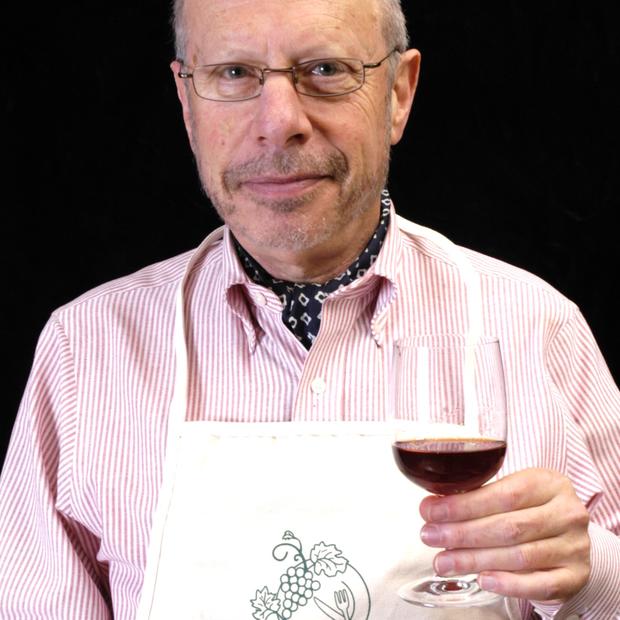Change happens fast. It's been less than a decade since Dry Fly opened a distillery in Spokane to take advantage of eastern Washington's vast supply of grain. Then came Sound Spirits in Seattle's Interbay neighborhood, the first (legal) distillery inside city limits since prohibition was repealed.
In 2012, Washington got out of the retail liquor business, and the Legislature created a licensing category that authorized craft distilleries. A dozen outfits set up shop in SoDo alone. Today, Seattle has more micro-distilleries, 24, than any city in the country.
The biggest of the newcomers, and most ambitious, is Westland, Built at a cost of $4 million, with a production of 60,000 gallons a year, it's the largest malt whiskey distillery (by volume) west of the Mississippi. And its owners are only 25 years old.
The story of Westland Distillery starts among the giant trees of Grays Harbor County on Washington's west coast, where Douglas fir, spruce, alder, cedar and hemlock grow tall and moss-covered on Federal forestland, bathed in the cold, moist air blowing in from the Pacific Ocean. In that respect, Hoquiam and its neighboring towns, Aberdeen and Cosmopolis, are almost like the waterside communities of Scotland, but that's getting ahead of the story.
Here, at the turn of the last century, a young Stanford grad named Frank Lamb fell in love with the daughter of George Emerson, a sawmill manager in Hoquiam. Lamb started a company to design and manufacture logging and milling equipment, moved into paper making, and was instrumental in developing the Port of Grays Harbor. His son, David, began exporting the machines to Scandinavia, which also has abundant forests.

But David's son, named Emerson Lamb, became interested in something quite different. Not yet 20, he approached a classmate from Bellarmine Preperatory Academy in Tacoma, Matt Hofmann, with a business plan to distill malt whiskey.
A grand ambition, it seemed at the time. Single malts came from Scotland and Ireland, not western Washington. But Hofmann dropped out of the University of Washington to sign on, and the two friends set out for Scotland. "We weren't old enough to drink in the States," is how Lamb put it.
They raised money from family and friends, and leased a couple of buildings in South Park to get started. Whiskey is basically distilled beer, but Lamb and Hofmann decided to make their own mash rather than buying it from a local brewery as other local distillers do. Their grain would come from the Skagit Valley, where WSU maintains a research station; their water (minimally processed!) from the Cedar River. Because they wanted a uniquely American product, a uniquely Northwest whiskey, they also decided not to hire a Scottish master distiller.

Their 55-gallon casks are heavy-toast, low-char, made from American oak by the Independent Stave Company of Lebanon, Missouri. The whiskey, distilled in Seattle, ages for 27 months at a rack house in Hoquiam, where the air is colder and moister (which significantly reduces expensive evaporation) and extracts the sugars from the wood. The process also oxidizes the whiskey, and develops the unique esters of a mature Scotch.
But they don't call it “Scotch.” American whiskeys like bourbon are distilled from corn, rye and wheat among other grains. Westland, like old-world single malts, is made exclusively from barley, most of it grown in the Skagit Valley, where over 5,000 acres have been planted in the last five years thanks to enthusiastic recommendations from WSU's agricultural scientists.
The malted barley is fermented for six days with a Belgian brewer's yeast, resulting in a spicy mash that's then put through Westland's bright copper Vendome pot still. (Westland produces two more whiskeys: one aged in sherry barrels, and a second with barley that's been sprouted over peat; next step: Westland is buying its own peat bog.) Then two years of barrel aging before bottling.

To build a personal rapport with bartenders and retailers, Westland is keeping a tight rein on local distribution, but the demand is growing nationwide as the reputation of their whiskey spreads: Double golds and best-of-class medals are no longer news. Nor is the price tag an obstacle; all three whiskeys retail for $55, just under $70 with taxes.
What do you get for that? A remarkable whiskey with aromas of coffee and chocolate, overtones of red stone fruit and coconut, crème brûlée and vanilla, toasted nuts and baking spices. If you prefer your whiskey with peaty overtones, it's in the other bottle. This one, the Flagship, is medium-bodied and sweet on the palate.
American single malt is a new category of spirit, Lamb points out, an instant “must-have” for any self-respecting bar. “There is no definition. “That gives us the opportunity to put Washington on the world map.”
Says Hofmann, who is responsible for all the single-malt geekiness that goes into its production, “This a distinctly American spirit.”
The competition isn't standing still. Dry Fly has a single-malt in the works, and the powerhouse team of Master Distiller Erik Liedholm and restaurateur John Howie at Wildwood Spirits in Bothell will doubtless follow. The good folks at Copperworks and Sound Spirits aren't far behind, but Westland is clearly the front-runner.
A national spirits distributor, Anchor Distilling, now represents the Westland brand in over three dozen states. Can the UK itself be far behind? No doubt about it: underage drinking has its positive side.
Westland Distillery, 2931 First Ave. S., Seattle Tours & tastings ($5, refunded with purchase) Wednesday through Saturday. Call 206-767-7250 to reserve a spot.

